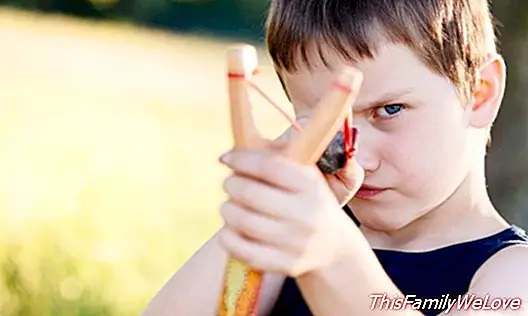Disocial disorder, the evil that is explained from the psychology

Why are children bad? Education could be an explanation to this matter. The lack of teaching of good values among the smallest of the house would explain certain attitudes among the children. However, from the field of psychology an explanation is offered to some behaviors like childish evil or adolescent rebellion.
As explained by the Cadah Foundation Dyssocial disorder is one of the most serious alterations in the behavior of the smallest of the house. Those affected by it, manifest behaviors They do not conform to the social regulations typical of their age and end up acting by altering the rights of their peers.
Manifestations of the dissocial disorder
As defined in Diagnostic and Statistical Manual of Mental Disorders, the disocial disorder is characterized by the conscious participation on the part of the child or adolescent in acts that involve a conflict with the social norm or that break the laws of coexistence implicit in the interpersonal relationships. Usually these children develop in family environments that make them stay in this state.
Some habitual behaviors among the patients of the dissocial disorder are the following:
- Assaults on other people, manifested through intimidation to other children. Cruel behavior of his teammates, who can cause physical damage.
- Damaging the property of others through deliberate acts.
- Theft of other children.
It is important to attend to these symptom of the dissocial disorder, since this alteration in the personality causes a clinically significant deterioration of the social, academic or work activity. It is important to know the age at which this alteration begins, if it appears in childhood or adolescence.
The earlier the symptoms appear, the more severe this disorder is.
In the case of adolescents, they tend to manifest behaviors and behaviors of greater risk. In these situations, the severity and risk in the affected it is of greater degree, so that the supervision and control over them must be much greater.
Treatment of the dissocial disorder
The dissocial disorder must be treated as soon as the first symptoms This will prevent victims from being affected by too much damage or the child being isolated from their friendships because of these behaviors. You have to know that a lot of the behaviors that appear in the stage of adolescence in those affected with ADHD can worsen the symptoms manifested by this personality problem.
In the case of adolescents with ADHD, who also have associated a picture or a diagnosis of dissocial disorder, the probability of suffering traffic accidents, affective problems, social rejection and academic problems such as school absenteeism or very low academic performance, They increase exponentially increasing the risks and limiting the effectiveness of the interventions.
Interventions with those affected by the dissocial disorder should revolve around therapeutic axes designed based on the following strategies:
- Prevention of risk behaviors and problematic behaviors, work especially in self-control.
- Put emphasis on emotional self-regulation to develop optimal ways of expressing negative feelings and not doing so through behaviors that may cause harm in other people.
- Address other underlying aspects of the problem: family environment, personal difficulties, emotional problems, school situation, etc.
- Establish limits and rules of action inside and outside the home.
Damián Montero




